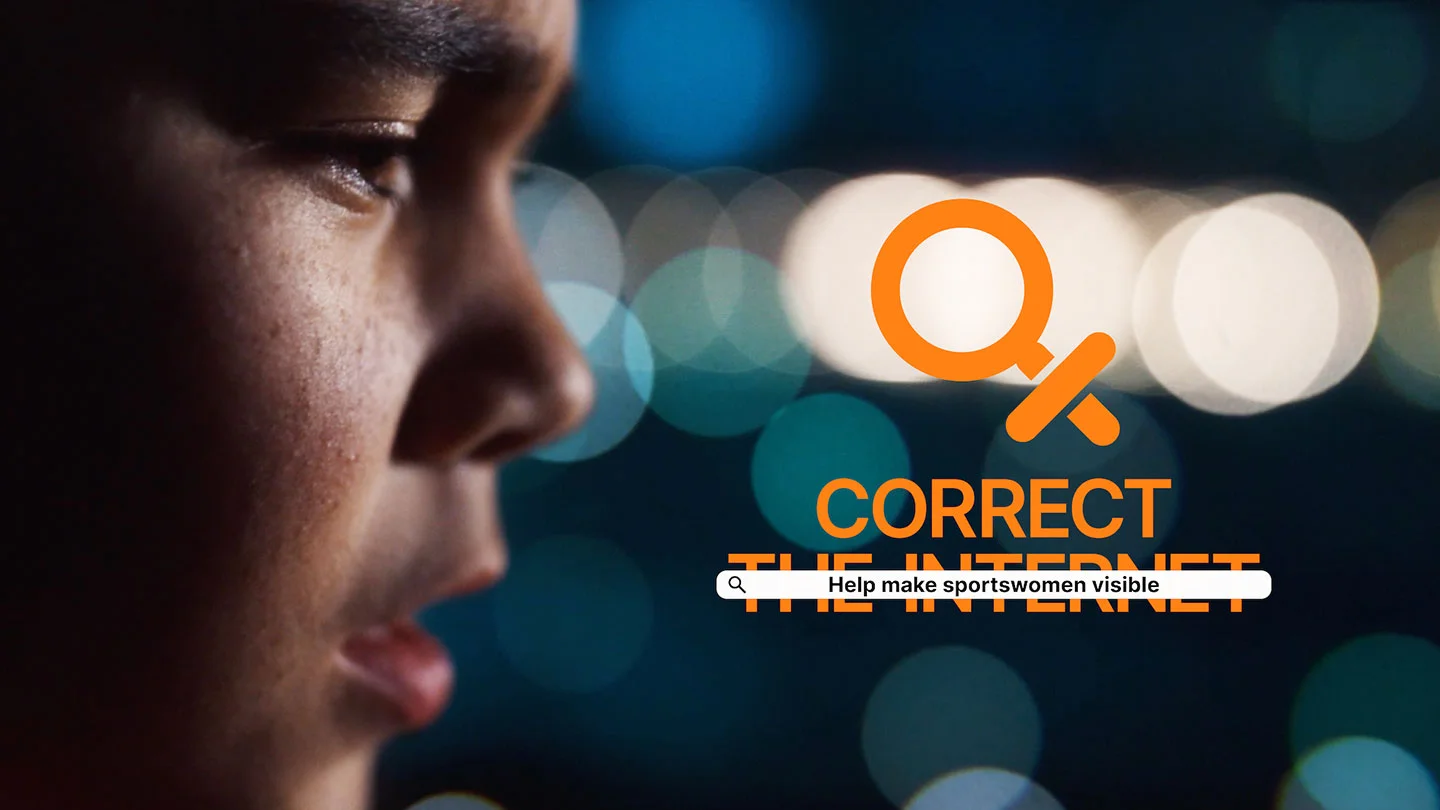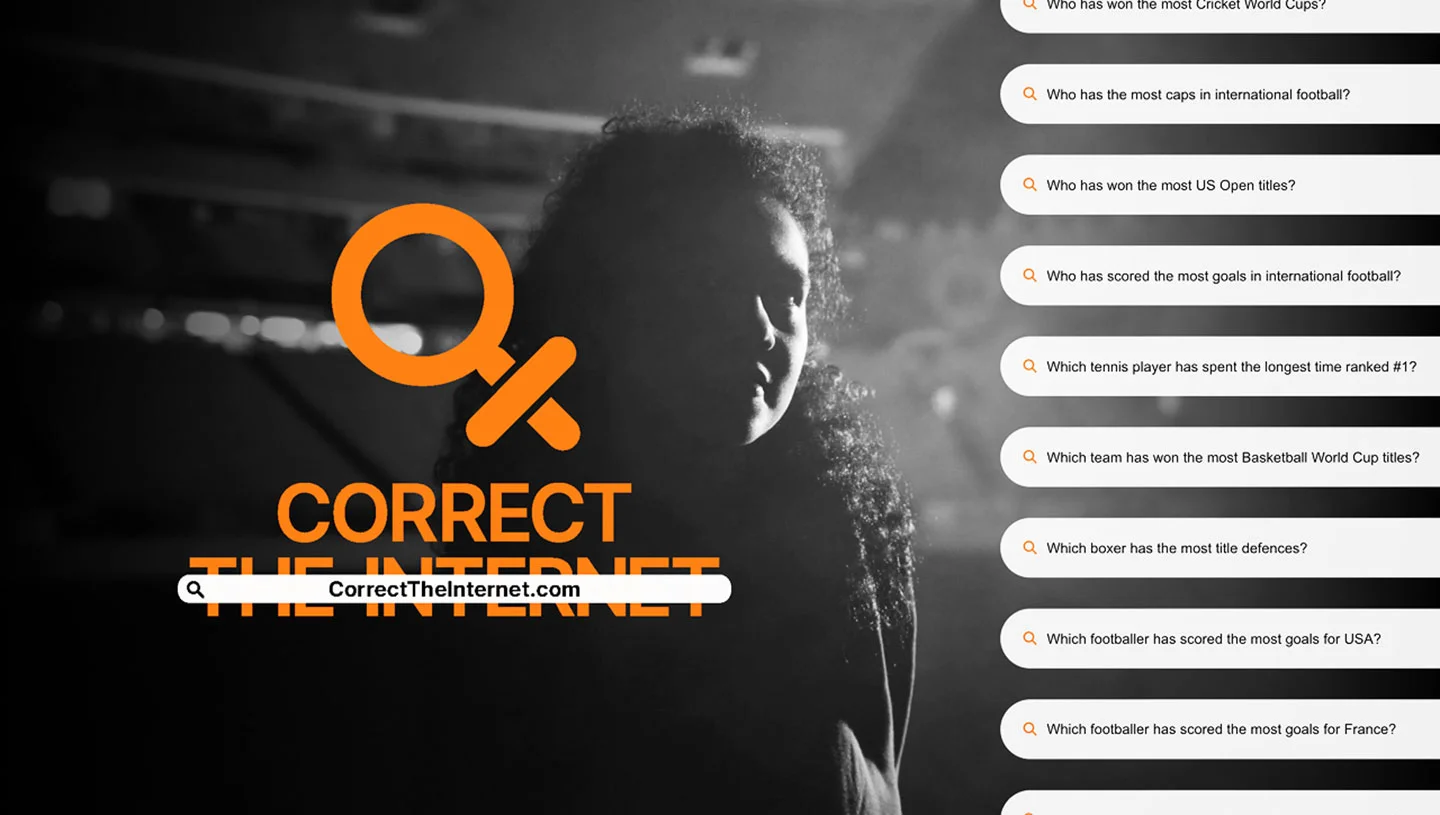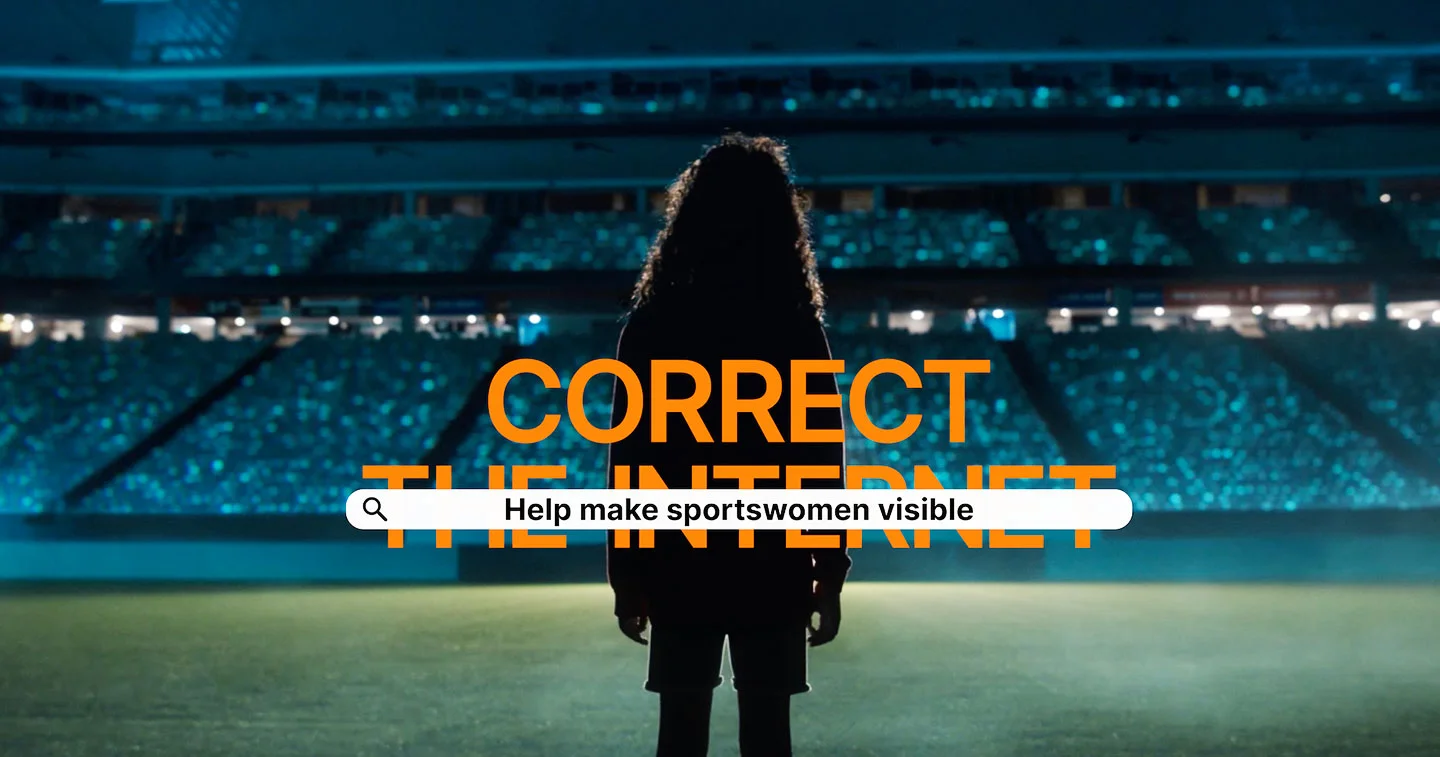SINGAPORE — The inconsistency of searchable facts that disadvantages sportswomen is the main focus of global campaign “Correct The Internet” that launched on January 21, 2023. The project is the collective work of an international group of like-minded people that seeks to highlight and correct inaccuracies in internet search results and make sportswomen more visible as a result.
One of its founding partners is Rebecca Sowden, former New Zealand Football Fern and owner of international women’s sports marketing and sponsorship consultancy, Team Heroine, which is a member of the United Nations’ Football for the Goals*.
Rebecca Sowden expressed her passion about helping the world recognize all sporting heroes and empower the next generation of sportswomen: “Many of the world’s leading athletes are women. Many of the world’s sporting records are held by women. But when people search online for factual sporting information about athletes, the results favor the sportsmen, even when the sportswomen have greater statistics.”

Paul Spain, Gorilla Technology’s Futurist and CEO, shared: “Search engine algorithms draw on human-created content, designed to give us what we are looking for, instantly. Because search engines take so much notice of what is made popular by major publishers, social media platforms and content creators, search results will reflect certain people’s or organizations’ inherent preferences. This can lead to biased search results that include information that is not factually correct.”
The campaign has also garnered the support of many well-known athletes and high-profile sporting organizations including English rugby’s Red Roses’ player, Shaunagh Brown, and Football Fern Meikayla Moore, and is supported by Women in Sport Aotearoa, Ngā Wāhine Hākinakina o Aotearoa (WISPA), Women Sport Australia and New Zealand Football.
Shaunagh Brown said “The only way to correct the algorithm is through the power of the people and Correct The Internet wants to empower people to help ensure accurate information is delivered to all of us. Let’s do this for future sports people everywhere.”
It’s a view echoed by Meikayla Moore: “This campaign is prefaced on not continuing to pitch women against men, but to correct and highlight incorrect searchable facts that have lacked consistency and accuracy leading to disadvantages for sportswomen across the globe.
“I feel it’s important for those that have achieved these amazing statistics but also for all those witnessing such brilliance. Women are heroes, let’s recognize them for it and remove learnt bias, empowering and inspiring the next generation,” she added.
With its aim to empower women through the power of sport, Correct The Internet has garnered the support of Football for the Goals (FFTG), a United Nations initiative that provides a platform for the global football community to engage with and advocate for the Sustainable Development Goals (SDGs), Goal 05 of which aims to achieve gender equality and empower all women and girls.

Maher Nasser, Director of the Outreach Division of the UN’s Department of Global Communications, commented: “With growing reliance on internet search engines to find information, algorithms assume that human biases, conscious and unconscious, are the natural order of things and elevate results that conform with that. Gender equality starts with recognizing the biases and challenges faced by women and girls and campaigns like Correct The Internet are a great way to unmask how the same biases have entered the virtual world.”
Women in Sport Aotearoa has also got behind the cause. Acting Chief Executive Nicky van den Bos said: “There couldn’t be a better time for this campaign, with women’s sport in the spotlight more than ever before. The 2022 ICC Women’s Cricket World Cup and the Black Ferns performance in the Rugby World Cup last year, and this year’s FIFA Football Women’s World Cup in New Zealand means internet searches may just be at an all-time high. Let’s ensure the results reflect the facts, not historic biases.”
Rebecca Sowden added, “Because the internet has learnt our bias many of its search engine results are inconsistent, often favoring men, and change depending on who is searching. Our goal is to empower the next generation of sportswomen by ensuring that when women are the best in the world, the internet reflects that.”
There’s no easy way to correct the inconsistencies in search results. However, if people report these issues using each search engine’s built-in feedback function, they can be logged and fixed. The problem is, most people aren’t familiar with the feedback function, and recent design changes on some of the larger search engines make it harder to find.
The team behind Correct The Internet has already identified numerous factual inconsistencies and has created a tool that makes sending feedback easy for anyone to execute with just a couple of clicks.
The tool is hosted on www.correcttheinternet.com. The public can visit the site to send a feedback message to search engines notifying them of their incorrect search results and provide the correct information. Over time, the aim is to find and correct as many incorrect search results as possible using this tool and the collective power of the people.









